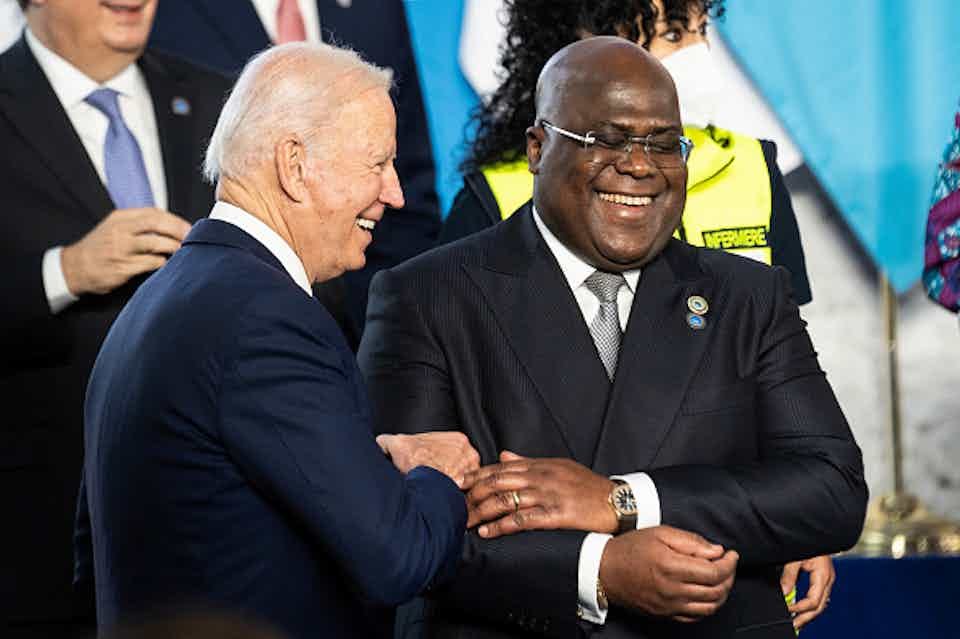The inaugural Summit for Democracy was hosted by President Biden’s administration. And it led to the creation of the Presidential Initiative for Democratic Renewal, which included approximately a dozen distinct programmes that the US government hoped to fund with $424.4 million.
The United States will collaborate with nations from several continents to co-host the second Summit for Democracy from March 29 to 30. In addition to Costa Rica, the Netherlands, and South Korea as co-hosts, Zambia is the official African partner nation.
Given the tremendous international acclaim for Zambia’s president, Hakainde Hichilema, who won the elections in 202. Immediately began to improve the country’s reputation, the pick of the southern African country is not surprising.
For Africa, the meeting is timely. Afrobarometer polling in 34 nations found that most African citizens favour democracy over other types of government. Other recent shining examples outside of Zambia include Niger, which last year had its first peaceful transfer of power between democratic governments.
However, according to a recent report from the Varieties of Democracy project, 79 percent of the population of sub-Saharan Africa still lives under governments. That are either closed autocracies or electoral autocracies, which are those that hold elections for the chief executive but do not adhere to international standards for free and fair elections.
A third of Africans live in a nation where political inclusion, rights, and involvement have dramatically declined during the past five years. In fact, a few of the region’s formerly dominant democratic forces have changed their tune.
Senegalese President Macky Sall, for instance, continues to be evasive about whether he will seek an unlawful third term in office at the elections. Held the following year despite having vehemently opposed his predecessor’s attempts to do so more than ten years earlier.
The region’s democratic weaknesses are also highlighted by a number of crucial elections in 2023. Confidence in the competence and integrity of electoral commissioners is still a major issue in many nations.
A prime example is the just-completed general elections in Nigeria, when the Independent Nigerian Electoral Commission. Lifted the bar for voter openness by using an electronic method for voter accreditation.
Concerns regarding the independence of the new head of the National Independent Electoral Commission led to widespread protests in the Democratic Republic of the Congo in the latter part of 2021. (CENI).
The CENI’s lack of money, coupled with the nation’s continuous conflict in the east, has led to predictions that this year’s elections would be delayed. The UN decided not to create a basket fund in Madagascar to pay for the $33 million asked by the electoral commission to carry out elections planned for the end of this year.
Deeper worries about the effectiveness of democracies exist in addition to election dynamics. For instance, corruption is a major cause of Africans’ dissatisfaction with how well their democracies are functioning and has been cited as a reason for a number of recent coups.
The inaugural democracy summit led to the establishment of a number of anti-corruption initiatives, with a special emphasis on empowering media and civil society to expose fraud and increase transparency.
Notwithstanding the necessity of these initiatives and those made by anti-corruption champions, they fall far short of what is required in the absence of incentives that upend the political order that encourages public waste.
Expectations for this second democracy summit should be low for all of the aforementioned reasons. Without a doubt, it will present a significant chance for civil society organisations, the media, business.
Some governments to highlight their achievements and discuss strategies for negotiating limited political areas. There should be details on how resources were allocated as well as whether or not pledges from the first summit were fulfilled.
But as summitry becomes more widely used by not just the U.S. but also the EU, China, Russia, and soon the U.K. to maintain geopolitical relations with the continent. It increasingly highlights the stark inconsistencies between various regional development and governance objectives.
For instance, there was little discussion of democracy at the 2022 U.S.-Africa Leaders Conference, and the quantity of pledges made significantly exceeded the funds. Committed under the Presidential Initiative for Renewal.
Human rights activists objected to the invitations extended to some of Africa’s most despotic leaders, including the dictator who has ruled Equatorial Guinea for 40 years. This second democracy conference will continue to have significant symbolic value.
However, it cannot be expected to stop democratic backsliding or assuage African citizens’ dissatisfaction with democratic performance. If some of the incentive structures of political elites to rig elections, undermine oversight institutions, or enable intra-party corruption are not fundamentally addressed.















